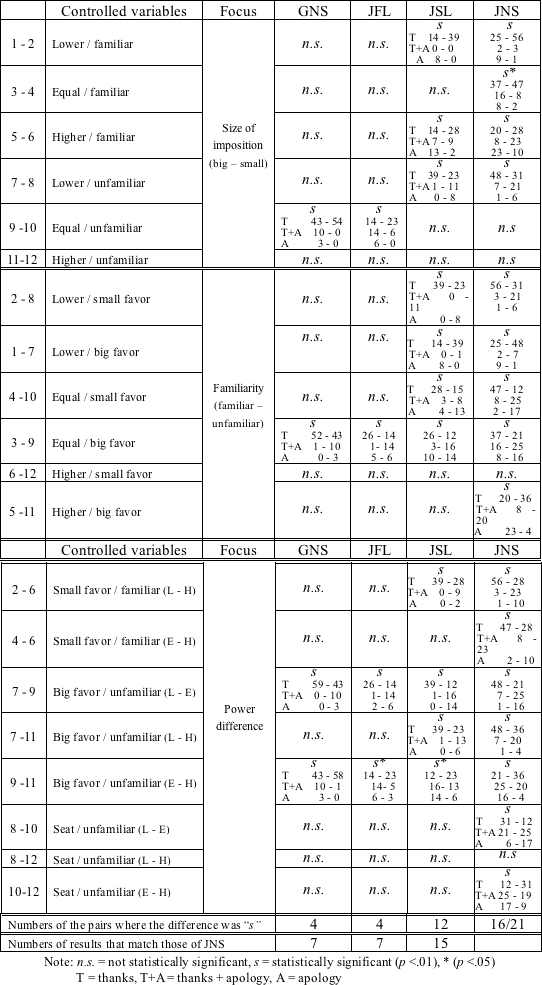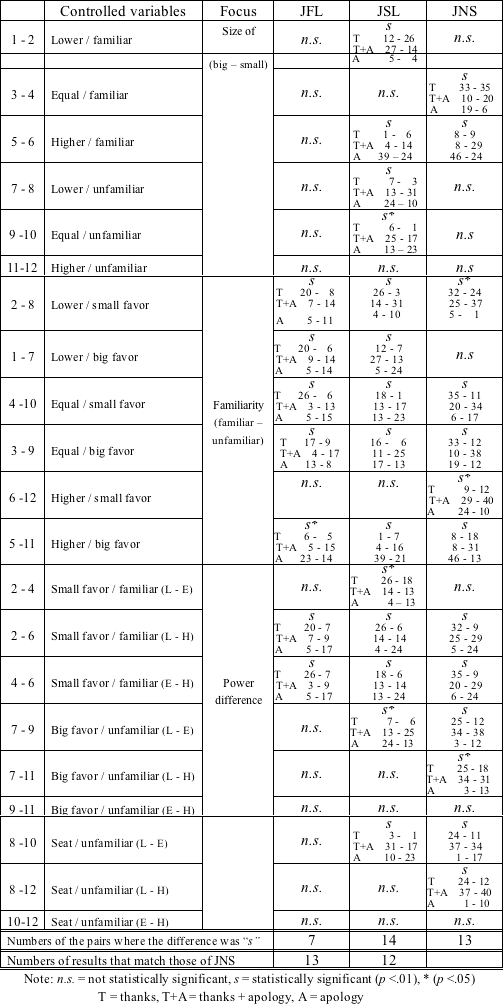|


Abstract
Using a discourse completion test and a multiple choice test, this study detected cultural differences in the appreciation strategies of native German and Japanese speakers; the German speakers predominantly used thanking expressions in almost all situations, whereas the Japanese speakers used both thanking and apologetic expressions in the same situations. For the German learners of Japanese, while their discourse completion test data identified some pragmatic transfer, they used apologetic expressions more frequently than did the native Japanese on the whole as a result of hypercorrection. Furthermore, the effects of learning contexts, length of residence, and situational variables were also investigated. The learners of Japanese as a foreign language presented clearer evidence of pragmatic transfer than did those learning Japanese as a second language. The study also revealed the Japanese native speakers' great sensitivity to the situational variables, whereas these variables barely affected the strategy selections of the German native speakers and the learners of Japanese as a foreign language.
Keywords:
appreciation strategies, pragmatic transfer, hypercorrection, length of residence, situational variables
|



